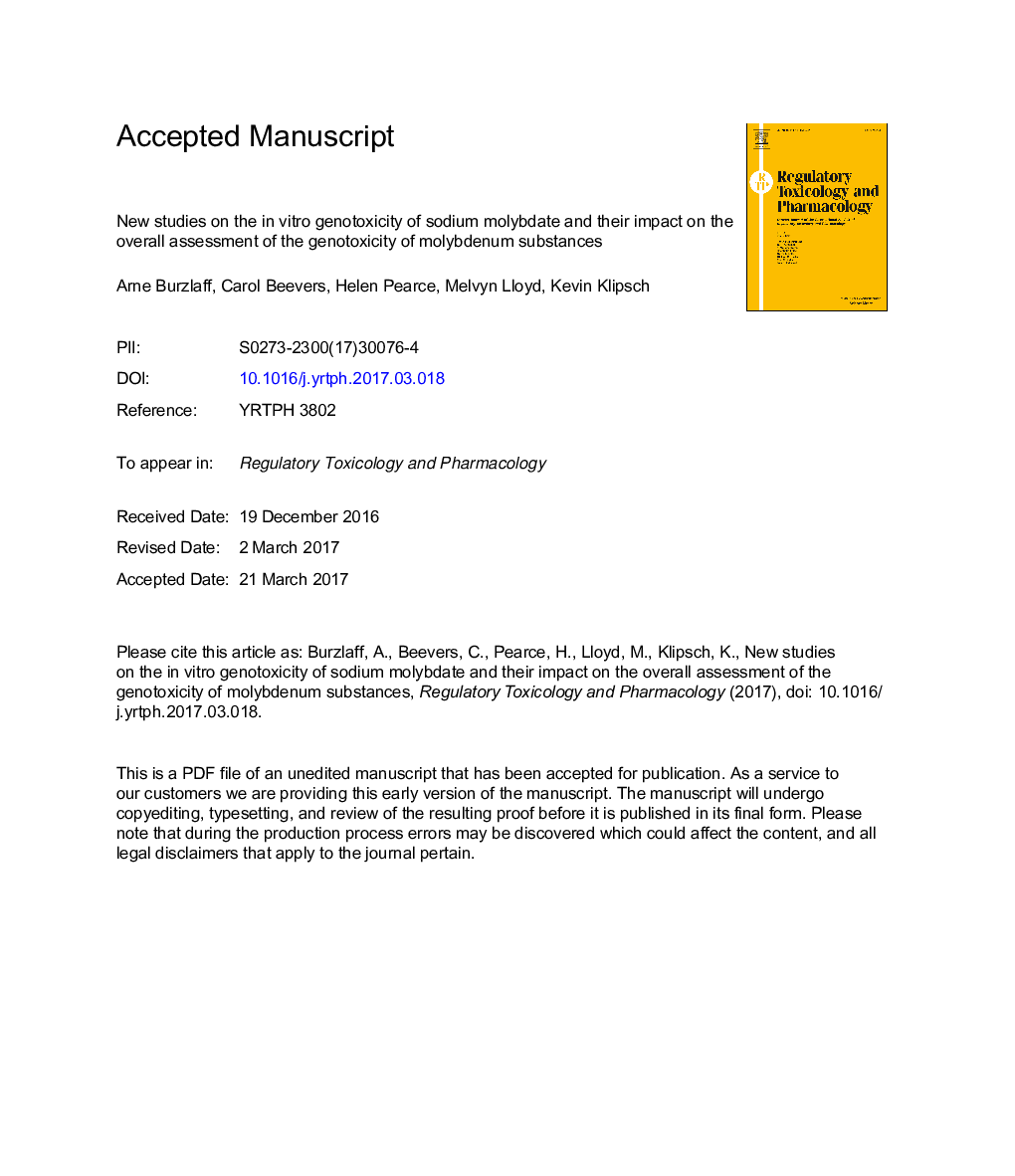| Article ID | Journal | Published Year | Pages | File Type |
|---|---|---|---|---|
| 5561280 | Regulatory Toxicology and Pharmacology | 2017 | 40 Pages |
Abstract
The potential of molybdenum substances to cause genotoxic effects has been studied previously. However, a review of existing in vitro data, including an assessment of relevance and reliability, has shown that inconsistent results have been observed in the past. To resolve the inconsistencies, new studies were performed with the highly soluble sodium molybdate dihydrate according to OECD test guidelines. In a bacterial reverse mutation assay sodium molybdate dihydrate did not induce reverse mutations in five strains of Salmonella typhimurium. No mutagenic or clastogenic effect was observed at the tk locus of L5178Y mouse lymphoma cells. In a micronucleus test in cultured human peripheral blood lymphocytes no clastogenic or aneugenic effects were seen. These results can be read across to other inorganic molybdenum substances, that all release the molybdate ion [MoO4]2â under physiological conditions as the only toxicologically relevant species. In summary, a weight of evidence assessment of all available in vitro data shows no evidence of genotoxicity of molybdenum substances.
Related Topics
Life Sciences
Environmental Science
Health, Toxicology and Mutagenesis
Authors
Arne Burzlaff, Carol Beevers, Helen Pearce, Melvyn Lloyd, Kevin Klipsch,
